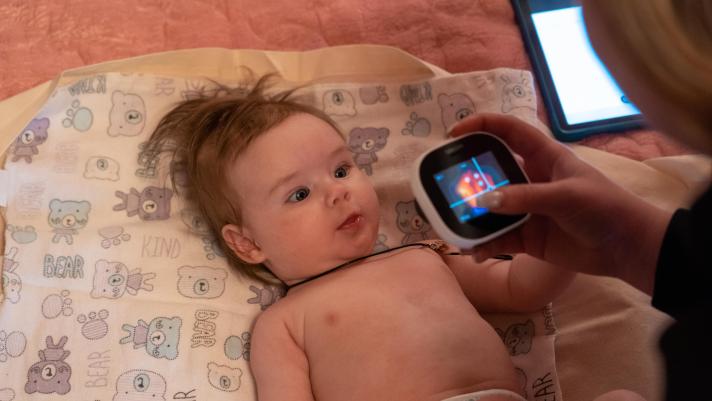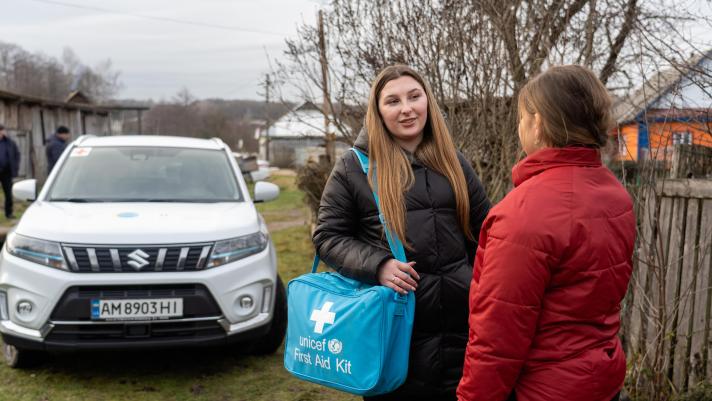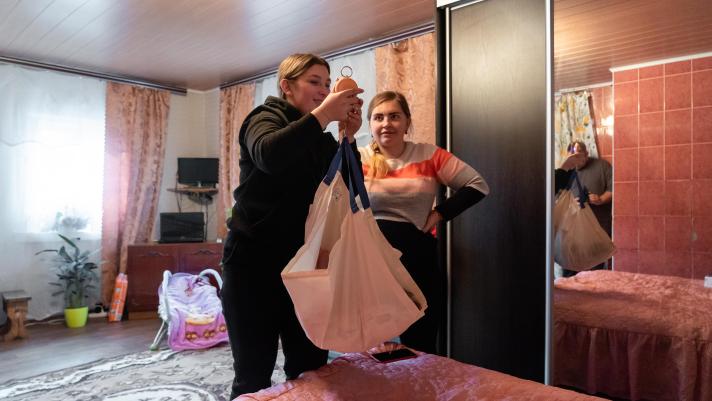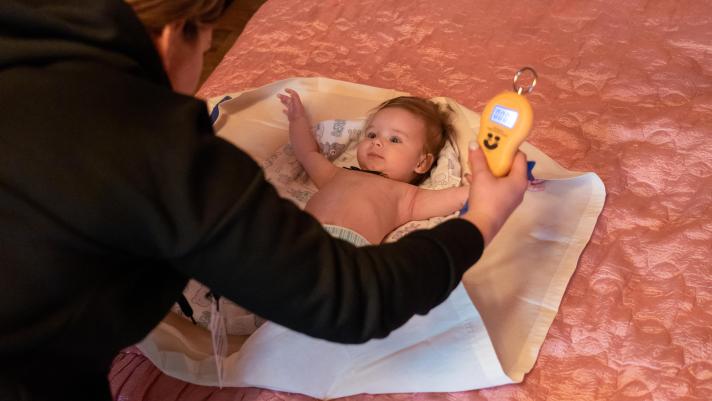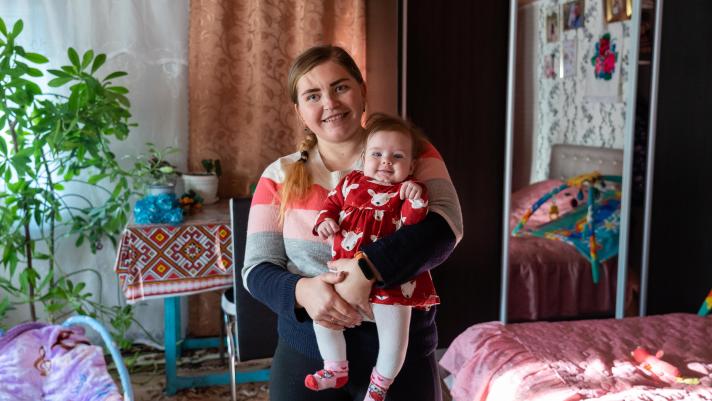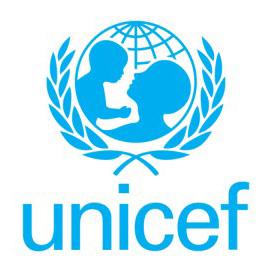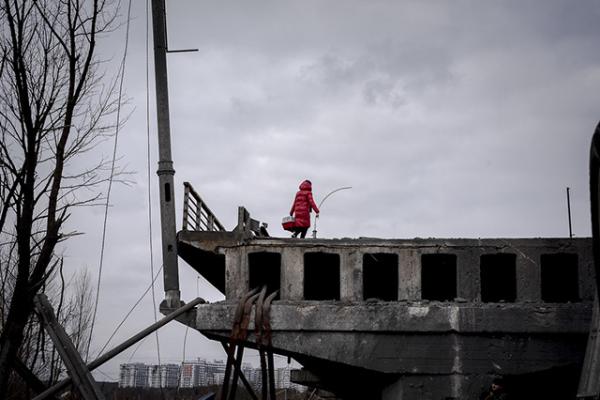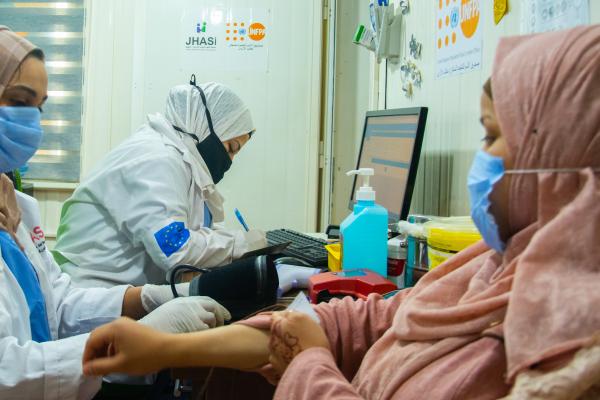Ruslana is a 19-year-old nurse who works at a clinic in Ukraine’s Zhytomyr oblast. She regularly visits families with young children in remote villages near the border with Belarus.
‘Some of my patients live 30 to 40 kilometres away from the clinic,’ Ruslana says. ‘The roads are often terrible, and a vehicle is sometimes the only way to reach them.’
Ruslana is one of 500 Ukrainian doctors and nurses specially trained by UNICEF, thanks to financial support from the European Union. This involved bringing together 500 medical professionals from 200 institutions across 11 regions to deepen knowledge of immunisation, breastfeeding, nutrition, sanitation, hygiene, positive parenting, and identification of developmental risks. Thanks to the trainings, these professionals have expanded their knowledge to provide much-needed medical support to young Ukrainian families today who often don’t have access to hospitals and other healthcare facilities.
Ruslana currently looks after 60 children aged up to three years old, visiting them at their homes almost every day. Amid the ongoing Russian invasion, home visits are safer and more comfortable for children – causing them as little stress as possible. It also means Ruslana can assess the child's behaviour, living conditions, and any potential social risks.
Recently, Ruslana took part in a special EU-funded training session launched through UNICEF’s Home Visiting Programme. This will improve the quality and success of her home visits, helping to keep young families healthier and safer in a challenging environment.
During this EU-funded training session, Ruslana and her colleagues learned a wide range of useful skills, including how to protect young children from vaccine-preventable diseases and monitor children’s health and growth, as well as how to manage parenting issues and nurture positive interaction with children through play.
‘During the training, I learned more about breastfeeding and vaccination, and found out how to communicate with parents and monitor a child's development,’ says Ruslana. ‘We practiced a lot.’
Three-month-old Solomiya is one of Ruslana's patients. Today, Ruslana is visiting her at home to record her temperature, height, and weight. She is also on hand to offer advice to Solomiya’s parents about breastfeeding, vaccinations, general childcare, and is ready to recommend specialised doctors if necessary.
‘With our older children, we had to go to the doctor's office, but now the home nurse visits us, and it's very convenient,’ says Yuliia, Solomiya’s mother.
Home visits like Solomiya’s are crucial for children living in remote villages. Thanks to medical professionals like Ruslana and the EU-funded training they receive, these children have access to constant care, and their parents can benefit from professional support – all in the comfort and safety of their own home.

